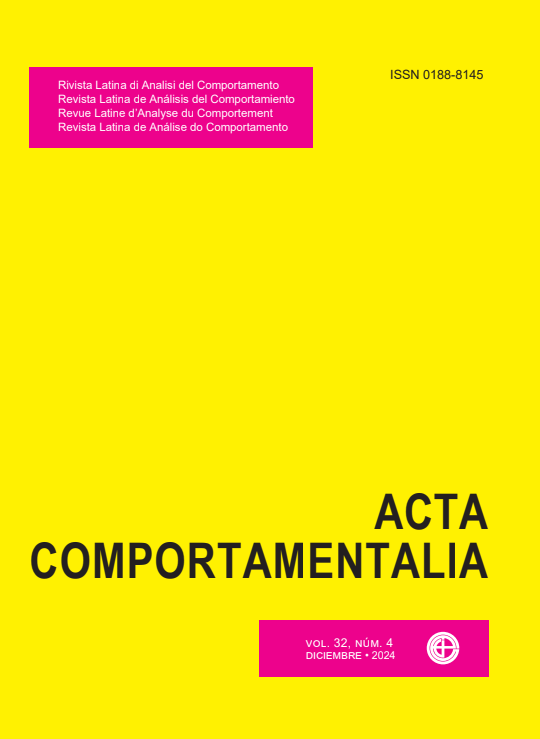Characterization of Behavioral Labor Relationships in the Work of B. F. Skinner
DOI:
https://doi.org/10.32870/ac.v32i4.88493Keywords:
labor, Behavior Analysis, Radical Behaviorism, B. F. Skinner, conceptual issuesAbstract
Labor is a central activity in society and of broad scientific interest. The behavioral dimension of labor was extensively addressed by B. F. Skinner throughout his work, but it lacks systematization. This study aimed to characterize the behavioral relationships addressed through the term “labor” in the work of B. F. Skinner. Twenty-eight texts were selected and analyzed based on readings, systematic recording of excerpts, and their categorization. B. F. Skinner addresses labor as a social operant behavior controlled by a complex set of environmental contingencies, rejecting mentalistic explanations. These contingencies are described in terms of variables controlling individual worker behaviors, the interlocking contingencies in labor relationships, and cultural practices that shape these behaviors and interlockings. Regarding the control variables of individual worker behavior, rules control, motivating operations, varied types of consequences, and schedules of reinforcement, predominantly in the capitalist system, are highlighted. In this context, the author emphasizes that, although salary is an arbitrary positive reinforcer, the behavior of working is primarily controlled by negative reinforcement, with the removal of the threat of losing the standard of living it maintains. Regarding the interlocking behavioral contingencies, the focus is on the mutual control between worker and employer, as well as the behavioral variables involved in reaching a labor agreement for both parties. Regarding cultural practices, four identified topics are prominent: i. the phenomenon of alienation, marked by the destruction of relevant natural consequences of labor; ii. the beneficial and problematic uses of labor-saving devices, impacting the construction of behavioral repertoires relevant to humans; iii. the fallacy of freedom as the absence of social determination over labor and the problem of the lack of counter-control by workers in the face of coercive relationships, involved in the phenomenon of “wage slavery” and the “happy slave”; and iv. the proposal of planning a new society with structurally alternative labor relations to those of capitalist society, through the creation of a classless economic system, free from exploitation, and with equal access to goods and services for a dignified life in harmony with nature. Based on these descriptions, it is discussed how Skinnerian analyses of labor subsidize understandings of the behavioral problems of contemporary capitalist society, such as the strengthening of harmful behaviors aimed at maximizing labor productivity; increasingly frequent cases of burnout, chronic stress, and anxiety disorders resulting from labor relationships; and the impoverishment of relevant behavioral repertoires due to the problematic use of new technologies, such as artificial intelligence, and new forms of alienated labor, as occurs in the service sector. It is also noted that there is a convergence between Skinnerian proposals for transforming labor relationships in society and the demands of contemporary social movements. Considering the current knowledge of Behavior Analysis on labor, there is a need to increase efforts in the field to conduct new research and interventions on the topic.
Downloads
Downloads
Published
How to Cite
Issue
Section
License

<a rel="license" href="http://creativecommons.org/licenses/by-nc-sa/4.0/"><img alt="Licencia de Creative Commons" style="border-width:0" src="https://i.creativecommons.org/l/by-nc-sa/4.0/88x31.png" /></a><br />Este obra está bajo una <a rel="license" href="http://creativecommons.org/licenses/by-nc-sa/4.0/">licencia de Creative Commons Reconocimiento-NoComercial-CompartirIgual 4.0 Internacional</a>.






